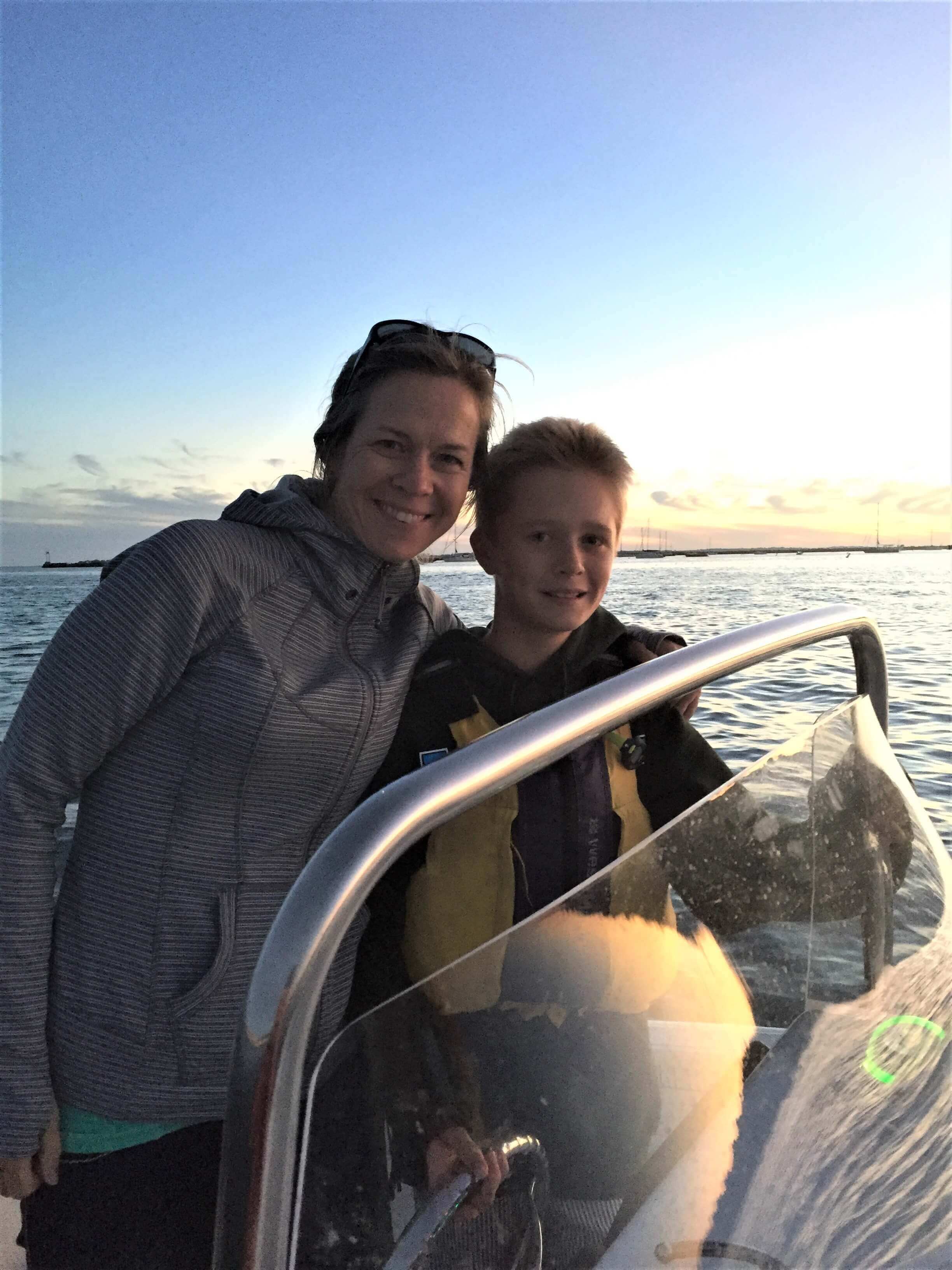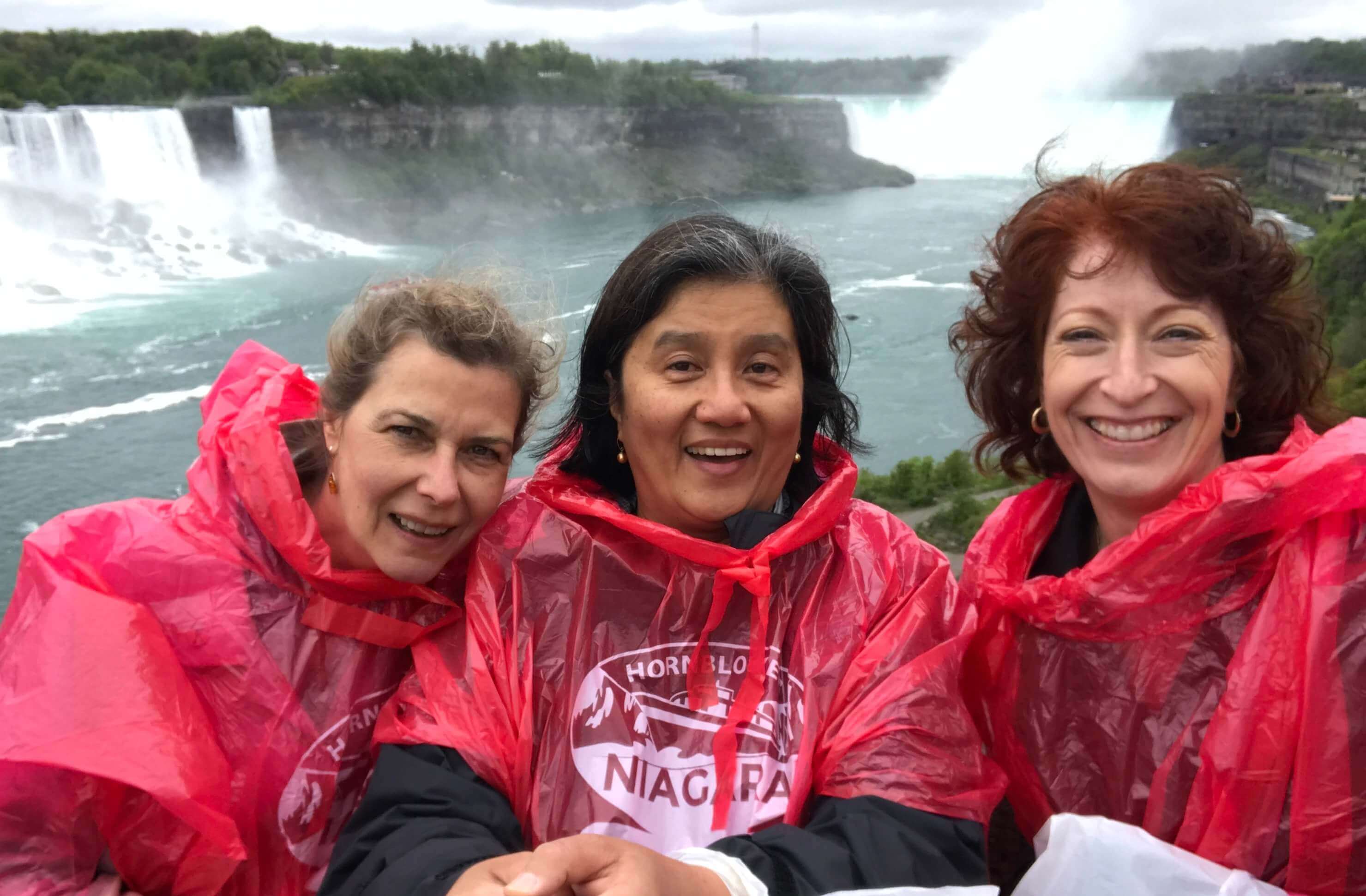Women in Science Up Close and Personal, Part 5: Success Strategies

In the fifth of our series honoring women in science, Pfizer researchers share their advice for young women who are launching scientific careers — and for the organizations hoping to hire and keep them.
Young women scientists face something of a tightrope walk: Acting as if their abilities won’t be underestimated can help them forge ahead, and yet ignoring how women are sometimes treated differently than their male peers can hold them back.
“I don’t assume that men think I’m less able in my field because I’m a woman,” says Katrina Loomis, Senior Director of Genome Science and Technologies at Pfizer’s R&D site in Cambridge, Massachusetts. “If I pursued my work and interactions with this assumption in the forefront of my mind, I would never try anything. Instead, I am blessed with enough self-confidence to let the interesting science and needs of the organization drive my actions and interactions.”

“I don’t assume that men think I’m less able in my field because I’m a woman,” says Katrina Loomis, pictured here with her son.
“In my experience, there’s an emphasis on women being good team players, and men being leaders, which sets up a situation where women don’t get the credit they deserve for their contributions because they’re reluctant to speak out about their accomplishments,” says Kelly Knee, Principal Scientist in the Rare Disease Research Unit at Pfizer’s R&D site in Cambridge, Massachusetts.
Judith Absalon, Senior Medical Director of Vaccines Clinical Research & Development at Pfizer’s R&D site in Pearl River, New York, has learned over time how to tout her own accomplishments. “The best way to advocate for oneself is to do the work but to also make others aware of your accomplishments. This can be done directly or indirectly, by sharing with other more senior people within one’s organization or through mentors or sponsors.”
Resisting the urge to always volunteer for stereotypically female tasks, such as organizing projects, taking care of personal details like a colleague’s retirement party, etc., is still a challenge for Loomis, but one she’s very conscious of.
“Years ago, I was in meetings where I was the only woman, and there was an expectation that I was going to take the notes, even though I was at the same seniority level as everyone else,” adds Knee. “It wasn’t until I pushed back a little and asked if someone else could take notes at some of the meetings that the work got distributed more evenly. Calling out a group on something like that is not easy, and it doesn’t always feel like it’s making that big of an impact. But every time attention is drawn to those types of biases, it gets a little easier to spot the next time.”
Having clear long-term goals can help young scientists navigate short-term interactions and decisions. “Think about the ‘story’ you want to tell about your professional self,” Loomis says. “What do you want to be known for? Prioritize your work and seek out opportunities that align with where you want your career to go. Carefully consider what you’re spending your time on. It’s great to be helpful, but make sure you’re getting the experience and the exposure that will help you be successful in the field you are passionate about.”
Insights for Organizations
Making sure women hold leadership positions should be a priority for organizations seeking to attract the best young women scientists, says Apita Maiti, Senior Director of External Science & Innovation for Inflammation & Immunology and Microbiome at Pfizer’s R&D site in Cambridge, Massachusetts. “If you don’t see anyone like you in the top levels of a company, how do you know you can get there?”
That’s a task that often rests on men’s shoulders: “We should work not on the women, but on the people who are making the decisions to recruit, retain and promote— oftentimes men,” says Rose Gonzales, Director of Compound Management and Distribution at Pfizer’s R&D site in Groton, Connecticut.

“We should work not on the women, but on the people who are making the decisions to recruit, retain and promote— oftentimes men,” says Rose Gonzales,
Along with mentorship, Absalon suggests transparency with respect to promotions and new opportunities and projects. Women can’t take on challenges they don’t know about. Annaliesa Anderson, VP and Chief Scientific Officer for Bacterial Vaccines at Pfizer, adds that women need to understand the specific development needs that are required to get to the next steps in an organization.
Young women scientists need to see living examples of other women who prove they, too, can have full lives while being a vital part of an organization—and they need direct support in order to maintain work/life balance. “Good people are hard to find, and it’s important that they feel they can develop their personal lives while also growing their careers,” says Anderson.
“I see many women scientists give up STEM careers when their children are young, to be the main caregivers,” says Maiti. “After a gap of several years, it’s really hard to come back to science. Women need affordable daycare and programs that allow flexible, part-time work so they can stay on top of their fields but are still able to spend time with their young children.”

Making sure women hold leadership positions should be a priority for organizations seeking to attract the best young women scientists, says Apita Maiti.
Such policies have had a meaningful impact on Loomis: “I am forever grateful for the support I received as a relatively new colleague at Pfizer in Groton when I was breastfeeding,” she says. “Pfizer provided a comfortable room that could be scheduled through Outlook. Instead of feeling guilty for taking time out of my workday to pump, I felt incredibly valued and supported.”
It’s often said that to be a good scientist, one must see problems in fresh ways and draw from varied experiences to arrive at the best solutions. The fact that women experience life differently (and are sometimes treated and perceived differently) than male colleagues only puts them in a better position to make breakthrough contributions, as long as they are given the chance to do so.





